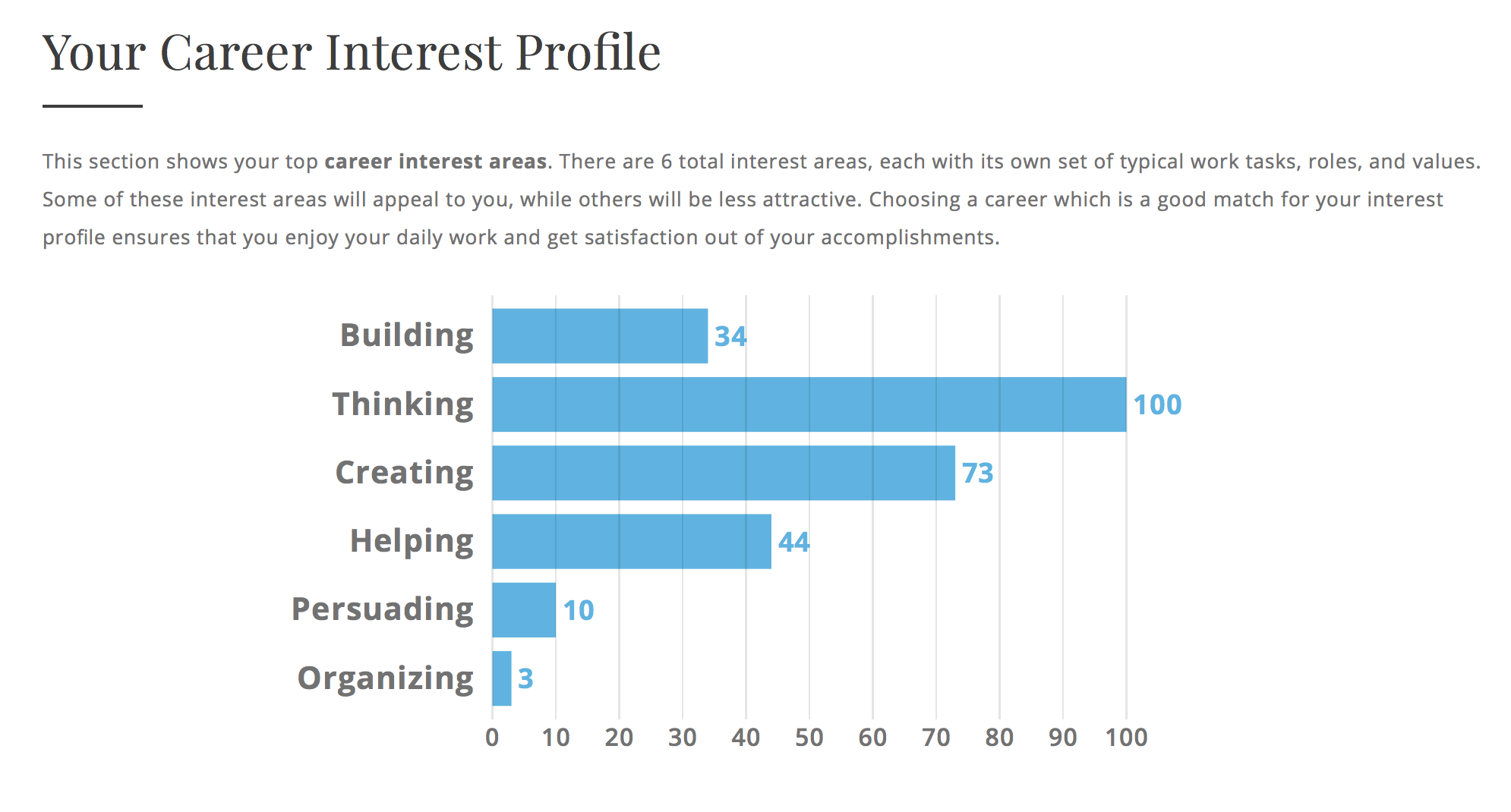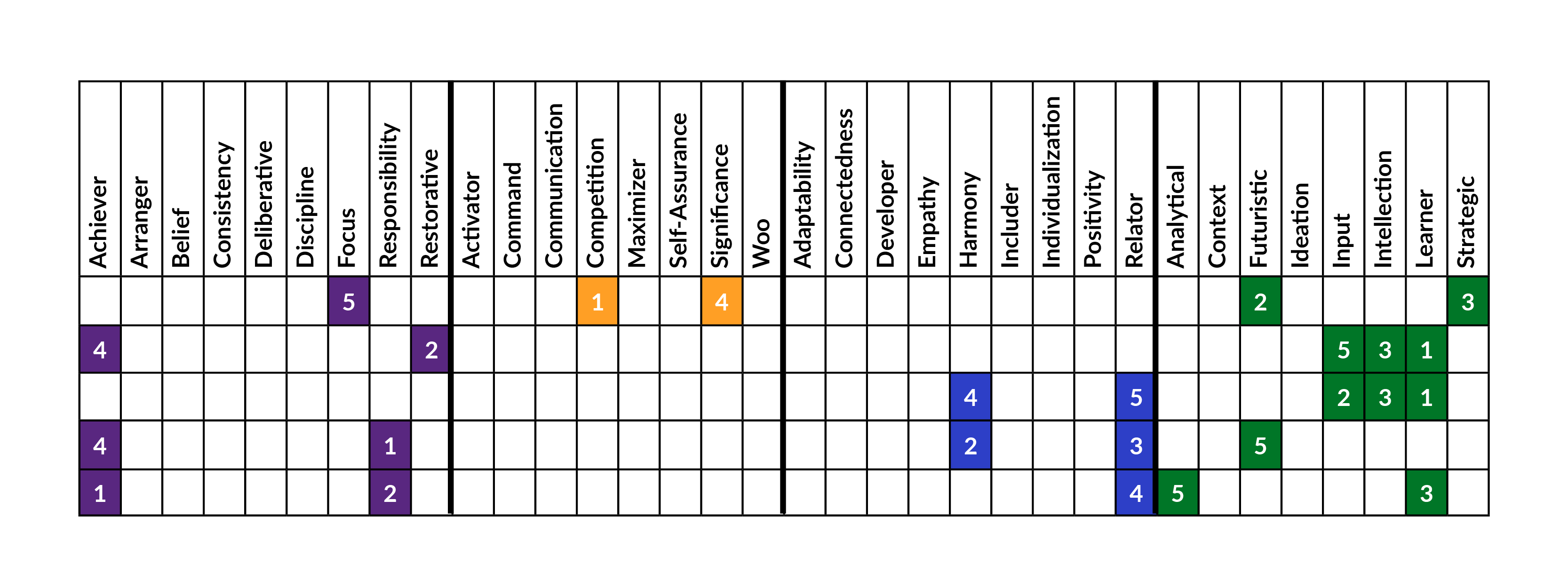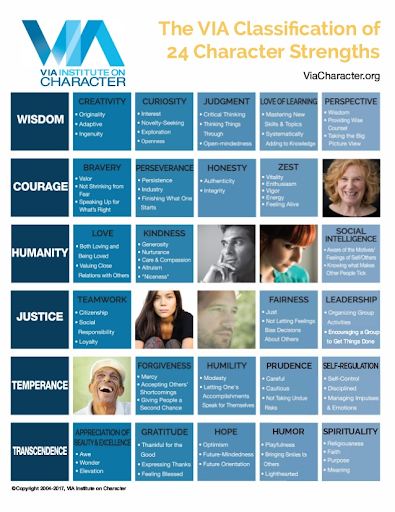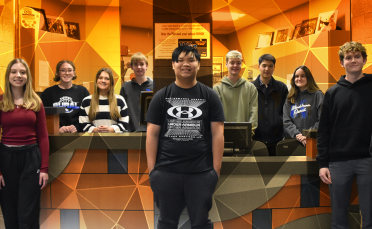Choosing a Vocation: The Role of Personality Assessments

Career, interest or personality assessments are great tools we can use to provide clues to our self-identity. I highly suggest parents use assessments to begin conversations with their children about their career interests, natural strengths, tendencies, etc. Parents and children alike might be skeptical of assessments, but assessments allow you to consider a lot of possibilities in a short amount of time. This can lead a child to consider a career they didn’t even know existed. Here are three assessments I believe to be valuable and how you can use them at home with your kids:
Holland Code Career Test
Most commonly thought of for identifying careers or industry interests, the Holland Code Career Test will help you explore work environments and personality for fit. And it’s free!
The top career interest areas include building, thinking, creating, helping, persuading and organizing.

After your child takes the assessment, you should ask questions to spark conversation. Perhaps you can take the assessment as well.
Questions to Spark Discussion About Results
- What areas did you score highest in?
- When thinking about this area you scored highly in, what energizes you most?
- Do you have concerns about aspects of your highest scoring areas? (What are they?) If your student is leery of some of the results, help them explore their fears and preconceived notions. Consider connecting them with someone in the field. Don’t let the results box you in.
- How could you combine your two highest scores in a career or hobby? (Creating and helping could be two skill sets a music therapist would use.)
- What areas did you score lowest in? Why do you think that is?
Consider speaking to someone in the areas you are most interested in. Ask them what they enjoy most about their jobs and why.
Gallup CliftonStrengths
CliftonStrengths gives insight into your natural ways of thinking, feeling and behaving, which give clues to talent or strengths. Strengths don’t identify what you do, but how you do it, giving you clues about the work environments you might enjoy most. To be at your best and use your strengths every day, do you need time to think? Projects to accomplish? People to be around?
This assessment costs $20 for the version that identifies your top five strengths and $50 for the version that identifies your full 34 strengths. If your student is 14 or older, I suggest the CliftonStrengths top five, and if they are ages 10-13, you can use Strengths Explorer. (It can be really fun to create a team map in your family of where everyone’s top strengths land and then talk about whether you agree or disagree. Find out more.)
Questions to Spark Discussion About Results
- What is your favorite strength?
- How have these strengths helped you to be successful in the past?
- How does it feel to focus on what you are good at compared to your weaknesses?
- Have you ever considered yourself to be extraordinarily talented in these areas?
Example: I always thought my talents in planning and organizing were a problem, mainly because I was so different from my peers. I didn’t realize they were one of my greatest assets and it wasn’t until I embraced them that I increased my confidence.

VIA Character Strengths
The VIA Survey of Character Strengths asks questions to understand your character traits. Character traits are intrinsically motivating. You use them regardless of whether people recognize them or pay you to use them.
This survey is free and you receive your 24 character strengths in order.
Questions to Spark Discussion About Results
- How do you feel about your top character strengths?
- How have you seen them play out in your decision-making?
- Do you have role models with these traits?
- How could you see these traits playing out well in a work setting?
- Do you have character traits you wish you would have scored higher in?
Example: When I took this survey, I scored low in the character trait of humor. What? Am I not funny? Well, the jury may still be out, but after initially feeling self-conscious, I realized I don’t always value humor and it doesn't come super naturally to me. That’s okay, other strengths do. And just because it’s a lower score doesn’t mean I’m bad at it or can’t do it, it just didn’t rank as high as others. Practice “owning it” and focusing on your top strengths, not your bottom-ranked ones.

Remember, don’t let results box you in. Simply use them as a starting point for further exploration and conversation. To take it a bit further, you can hire a coach who can help explore your assessment results, identify patterns, ask important questions and help your child put the information to use.

Kristen O'Shea increases the performance of individuals and teams through Gallup CliftonStrengths, engagement, and well-being with her company O'Shea Strengths Coaching. The journey of how she increased engagement, well-being and retention, and impacted a campus of more than 28,000 students is featured in the introduction of Gallup’s Clifton Strengths for Students book. She has a master’s degree in positive coaching and a graduate certificate in positive psychology from the University of Missouri and a bachelor’s degree from Kansas State University. You can connect with Kristen on her website or on LinkedIn.



